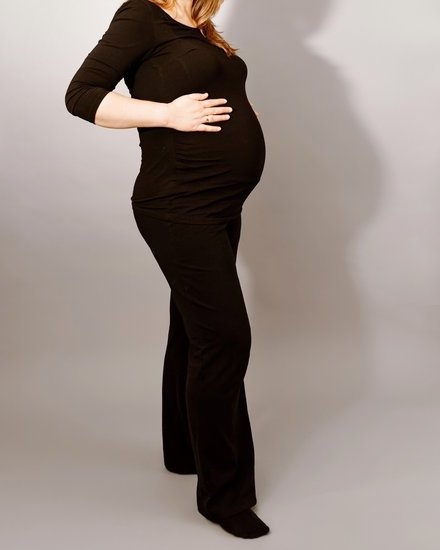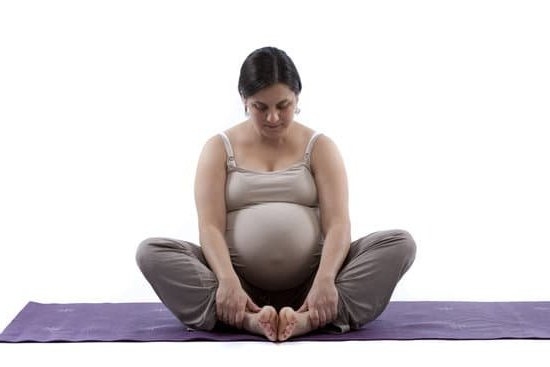Pregnancy is a beautiful journey filled with various physical changes, one of which includes cramping. Expectant mothers often wonder, “Is it normal to cramp during pregnancy?” This article aims to provide a comprehensive guide on understanding and managing cramps during this special time.
Cramping during pregnancy can be a common occurrence that leaves many women feeling concerned about their well-being and that of their baby. Understanding the different types of cramps, such as implantation, round ligament pain, and Braxton Hicks contractions, can help alleviate worries and prepare expectant mothers for what to expect.
This blog post will delve into the causes of pregnancy cramping, detailing how each type feels and when they typically occur during different stages of pregnancy. Additionally, it will offer insights on when cramping may signal a potential issue that requires medical attention, providing expectant mothers with guidelines on when to seek professional help. By the end of this article, readers can gain valuable knowledge on how to navigate through cramping during pregnancy with confidence and peace of mind.
What Causes Cramping During Pregnancy?
During pregnancy, experiencing cramps is a common occurrence that can cause concern for many expectant mothers. Understanding the various causes of cramping can help alleviate worry and provide reassurance. Here are the primary reasons why cramping may happen during pregnancy:
- Implantation: One of the earliest signs of pregnancy, implantation cramping occurs when the fertilized egg attaches to the uterine lining. This type of cramping is usually mild and can be mistaken for menstrual cramps.
- Round Ligament Pain: As the uterus expands to accommodate the growing baby, the ligaments supporting it stretch and can cause sharp or stabbing pains in the lower abdomen or groin area. Round ligament pain is most commonly felt during the second trimester.
- Braxton Hicks Contractions: Often referred to as “practice contractions,” Braxton Hicks contractions are irregular tightenings of the uterus that prepare it for labor. These contractions are typically painless but can sometimes be uncomfortable.
It is essential to differentiate between these types of cramping during pregnancy to better understand what is considered normal and when to seek medical attention. Implantation cramps are typically brief and mild, while round ligament pain may be sharp but should subside with rest. Braxton Hicks contractions are irregular and do not increase in intensity or frequency like true labor contractions.
As your body goes through significant changes during pregnancy, experiencing some level of discomfort or cramping is normal. However, if you notice persistent or severe cramps accompanied by bleeding, fever, chills, dizziness, or other concerning symptoms, it is crucial to contact your healthcare provider immediately. It’s always better to err on the side of caution and seek professional guidance if you have any doubts about the significance of your symptoms related to cramping during pregnancy.
When to Worry About Cramping
When experiencing cramping during pregnancy, it is common for expectant mothers to feel concerned about whether these sensations are a normal part of the pregnancy process. Understanding when to worry about cramping is essential for ensuring the health and safety of both the mother and the baby. While some cramps are typically considered normal and harmless, there are instances where cramping may indicate a potential issue that requires medical attention.
One key factor to consider is the intensity of the cramps. Mild, intermittent cramping that feels similar to menstrual cramps is usually normal during pregnancy. However, persistent or severe cramping that is accompanied by other symptoms such as vaginal bleeding, fever, chills, dizziness, or intense pressure in the pelvic area may be a cause for concern. In such cases, it is important for expectant mothers to contact their healthcare provider promptly.
Another red flag when it comes to cramping during pregnancy is the timing of the pain. Cramping that occurs in the first trimester and is accompanied by heavy bleeding or sharp pain on one side of the abdomen could be indicative of an ectopic pregnancy or miscarriage.
Similarly, if cramping arises later in pregnancy and is followed by reduced fetal movements or fluid leakage, it could be a sign of preterm labor. Any unusual or concerning symptoms should not be ignored, and seeking medical advice promptly is crucial for proper evaluation and care.
| Key Signs to Watch Out For | Possible Cause |
|---|---|
| Severe cramping with heavy bleeding | Ectopic pregnancy or miscarriage |
| Persistent cramps with reduced fetal movements | Preterm labor |
| Cramps accompanied by fever or dizziness | Potential complications requiring medical attention |
How to Relieve Cramping
During pregnancy, experiencing cramps is a common occurrence that can cause discomfort for many expectant mothers. While cramping may raise concerns, it is essential to understand that not all instances of cramping indicate a serious issue. In fact, it is normal to experience mild cramping during pregnancy as the uterus expands and the body undergoes various changes to accommodate the growing baby.
One of the most effective ways to relieve cramping during pregnancy is through gentle exercises and movements. Prenatal yoga or simple stretching routines can help alleviate muscle tension and promote better circulation, which can reduce the frequency and intensity of cramps. Additionally, practicing proper posture and avoiding sudden movements can also minimize the occurrence of cramping episodes.
In addition to physical activity, staying hydrated is crucial in managing cramps during pregnancy. Dehydration can exacerbate muscle spasms and increase the likelihood of experiencing painful cramps. Drinking an adequate amount of water throughout the day can help prevent dehydration-related cramping and promote overall well-being for both the mother and the baby.
| Tip | Description |
|---|---|
| Exercise | Engage in gentle exercises like prenatal yoga or stretching to alleviate muscle tension. |
| Hydration | Drink plenty of water throughout the day to prevent dehydration-related cramping. |
Expert Insights
During pregnancy, experiencing cramping can be a common occurrence that raises questions and concerns for expectant mothers. Understanding the reasons behind these cramps is essential in easing worries and knowing when to seek medical advice. Here are some expert insights on cramping during pregnancy:
Causes of Cramping
- Implantation: This occurs when the fertilized egg attaches itself to the uterus lining, often causing mild cramping and light spotting.
- Round Ligament Pain: As the uterus expands, the ligaments supporting it stretch, leading to sharp or dull pain on one or both sides of the lower abdomen.
- Braxton Hicks Contractions: These are practice contractions that may feel like tightening of the uterus and are typically milder than real labor contractions.
When to Worry
If cramping is accompanied by severe pain, bleeding, fever, or unusual vaginal discharge, it may indicate a potential issue such as an ectopic pregnancy or miscarriage. It is important to consult a healthcare provider if any of these warning signs occur.
Seeking Professional Guidance
Healthcare professionals recommend contacting your doctor if you have concerns about cramping during pregnancy. They can provide personalized advice and guidance based on your specific situation. Trust your instincts and don’t hesitate to reach out for help if you are unsure whether what you are experiencing is normal. Remember, it is better to be cautious and seek reassurance from a professional than to ignore potential complications.
Real Experiences
During pregnancy, experiencing cramping can be a common occurrence that raises concerns for many expectant mothers. Wondering, “is it normal to cramp during pregnancy?” is a valid question that often comes up. Real experiences shared by other pregnant women can shed light on this topic and provide some reassurance.
Shared Experiences
Many pregnant women find comfort in hearing the real experiences of others who have gone through similar situations. Stories of how different types of cramping felt, when they occurred, and how they were managed can help expecting mothers navigate their own journeys with more confidence. Knowing that others have experienced cramping during pregnancy and have successfully overcome them can be empowering.
Tips From Fellow Moms
In addition to sharing personal stories, fellow moms often offer valuable tips and advice on managing cramps during pregnancy. From gentle stretches to soothing baths, these practical suggestions can provide relief and support to those experiencing discomfort. It’s reassuring to learn from others who have been through the same challenges and found effective ways to cope with cramping while expecting.
Community Support
Being part of a community where experiences are shared openly creates a supportive environment for expectant mothers facing pregnancy-related concerns like cramping. Connecting with other moms-to-be who understand the ups and downs of this journey can offer a sense of solidarity and encouragement. Remember, you are not alone in your questions about cramping during pregnancy, and seeking guidance from those who have been there before can be truly beneficial.
Self-Care Tips
During pregnancy, experiencing cramps is not uncommon and can be a source of discomfort for many expectant mothers. While some cramping is normal due to the changes happening in the body, it is essential to understand how to manage and alleviate these sensations. In this section, we will explore some practical self-care tips that can help relieve cramps during pregnancy.
Stay Hydrated
One of the simplest ways to reduce cramping during pregnancy is by staying hydrated. Dehydration can often exacerbate muscle contractions and lead to more discomfort. Make sure to drink plenty of water throughout the day to keep your body well-hydrated, especially if you are experiencing frequent cramps.
Rest and Relax
Another effective way to ease cramping is by taking time to rest and relax. Pregnancy puts a significant strain on the body, so getting enough rest is crucial for overall well-being. Take breaks when needed, elevate your legs, and practice relaxation techniques such as deep breathing or prenatal yoga to help alleviate stress and tension that may contribute to cramping.
Over-the-Counter Remedies
If you are still experiencing discomfort despite hydration and rest, over-the-counter remedies may provide relief. However, it is essential to consult with your healthcare provider before taking any medication during pregnancy.
Certain OTC options like acetaminophen may be safe for easing mild pain but always follow your doctor’s recommendations for dosage and usage. Remember that self-care tips can vary from person to person, so listen to your body’s needs and consult your healthcare provider if you have any concerns about cramping during pregnancy.
Conclusion
In conclusion, experiencing cramping during pregnancy is a common occurrence that many expectant mothers may face. It is essential to understand the different types of cramps that can occur, such as implantation cramps, round ligament pain, and Braxton Hicks contractions, and when to be concerned about them. While some cramping is normal and a natural part of the pregnancy process, there are instances where it may indicate a potential issue that requires medical attention.
It’s crucial for pregnant women to listen to their bodies and pay attention to any warning signs that may accompany cramping. Seeking advice from healthcare professionals when in doubt is always recommended, as they can provide guidance on how to manage and alleviate discomfort. By following self-care tips, practicing relaxation techniques, staying hydrated, and making necessary lifestyle adjustments, expectant mothers can better cope with cramping during pregnancy.
Overall, every pregnancy is unique, and what one woman experiences may differ from another. Sharing experiences and seeking support from others who have gone through similar situations can provide comfort and reassurance. Remember that it’s okay to have concerns about cramping during pregnancy, but staying informed and taking proactive steps towards self-care can help promote a healthier and more comfortable pregnancy journey.
Frequently Asked Questions
When Should Cramping Be a Concern in Pregnancy?
Cramping during pregnancy can be concerning if it is severe, persistent, or accompanied by other symptoms like bleeding. It could indicate issues like ectopic pregnancy or miscarriage, so it’s essential to consult a healthcare provider.
Is Cramping Normal at 5 Weeks Pregnant?
Experiencing cramping at 5 weeks pregnant can be normal as the body adjusts to the changes of early pregnancy. As long as the cramps are mild and not accompanied by bleeding, it’s usually not a cause for concern. However, it’s always best to consult a doctor for reassurance.
Is It Normal to Have Period Like Cramps While Pregnant?
Having period-like cramps during pregnancy can be normal, especially in the first trimester as the uterus expands and ligaments stretch to accommodate the growing fetus. It can also occur due to gas, constipation, or round ligament pain. However, if the cramps are severe or persistent, it’s important to seek medical advice for peace of mind and proper evaluation.

Welcome to my fertility blog. This is a space where I will be sharing my experiences as I navigate through the world of fertility treatments, as well as provide information and resources about fertility and pregnancy.





